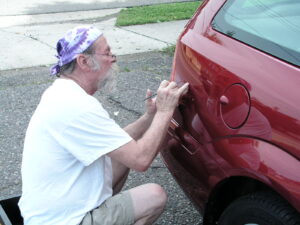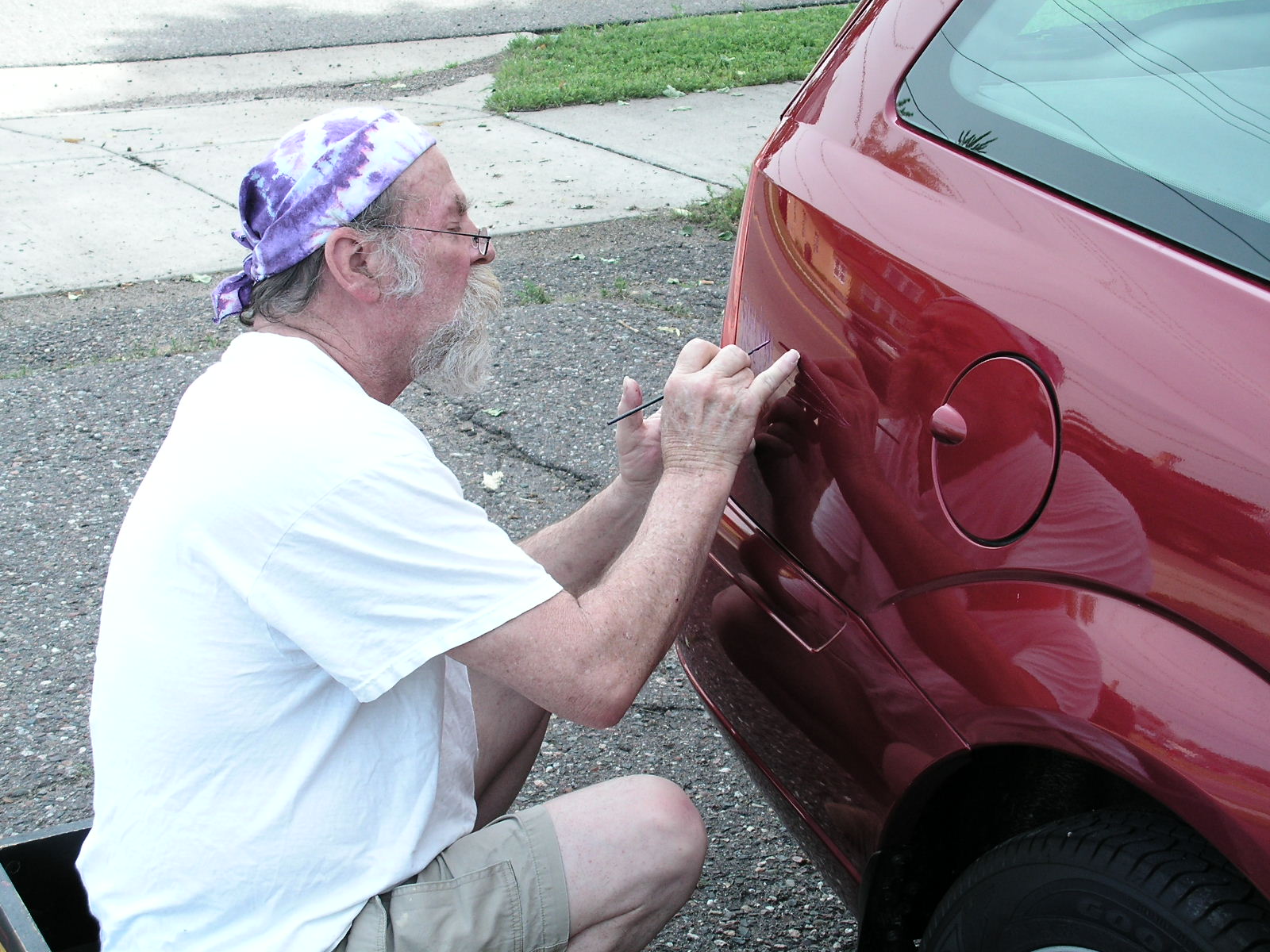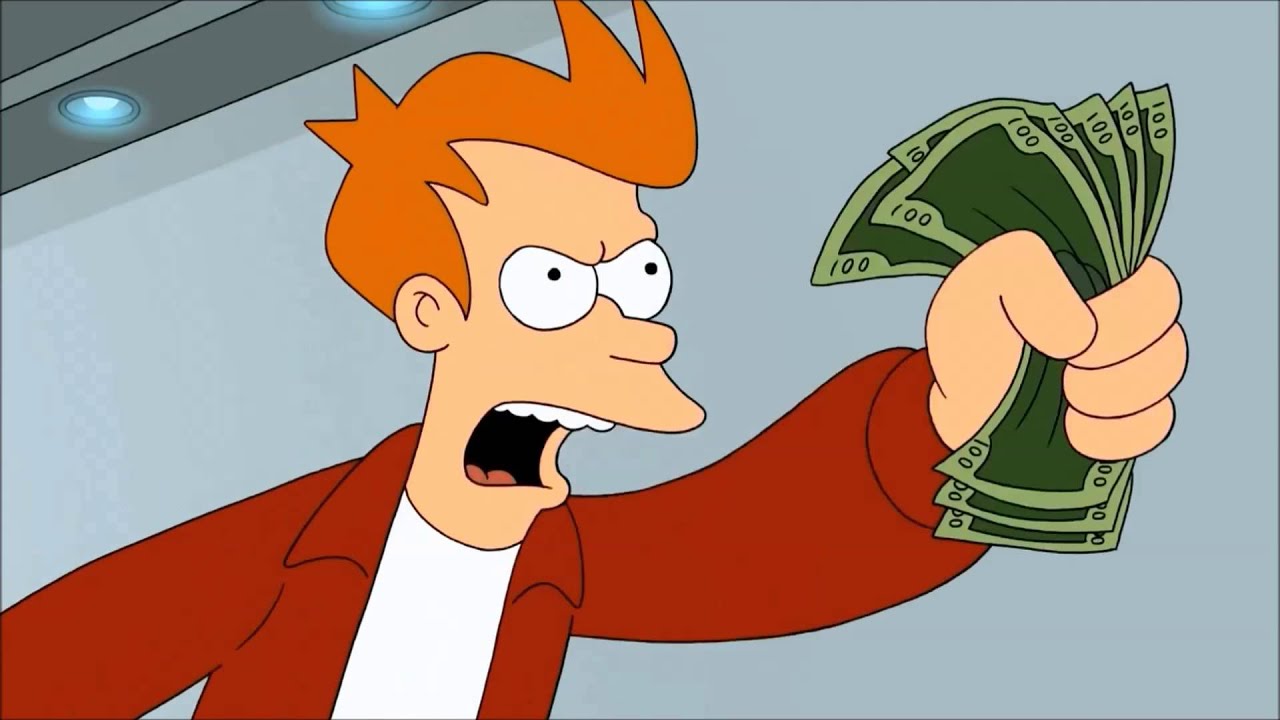 This is the second Father’s Day since my father passed.
This is the second Father’s Day since my father passed.
In some ways it feels like the first – nothing felt quite real about his death last year after the pandemic kicked in. In other ways, I’d been letting go of my father long before he actually passed.
In 2019 I talked to my father on Father’s Day, but the dementia and memory loss had progressed to the point where it didn’t really feel like talking to my dad. Unlike many other years, he wasn’t interested much in talking or staying on the phone. But I got to hear his voice, and got to say the words.
This year, I don’t have that option. I won’t again.
But I’m still thinking about my dad today. The picture here is from a trip in 2007. I drove up to Wisconsin with a new (to me) car and asked him to do a little pinstriping on it, and paint a character I’m fond of on the back of the car. It was a good trip, he (as always) did a great job on the car.
So I’m thinking about that trip today. And other good memories. Looking through some old emails. My dad used to love to forward hokey humor that was popular in the late 90s and early 2000s. (You know, the emails that have “Fwd: Fwd: Fwd: Fwd: Fwd: Fwd: Fwd: Fwd: Funny” in the subject line?) I’m guessing if he was alive today and in better mental health, he’d be all about memes.
I really wish I’d found more time to spend with him in my late 30s and early 40s. He threw out a number of fishing invitations, but I didn’t take him up on many of them. Too much work, too much travel, it was rarely a good time.
Family is complicated. If your father is still around, and you have or want a good relationship with them, be sure to spend some time with them or talking to them today. Not just the obligatory “happy Father’s Day” call. Try to learn something new about your father while you can. Have a real conversation while you can.
If you are a father, I hope you have a lovely day with your kids. Make good memories.
Miss you, dad.


